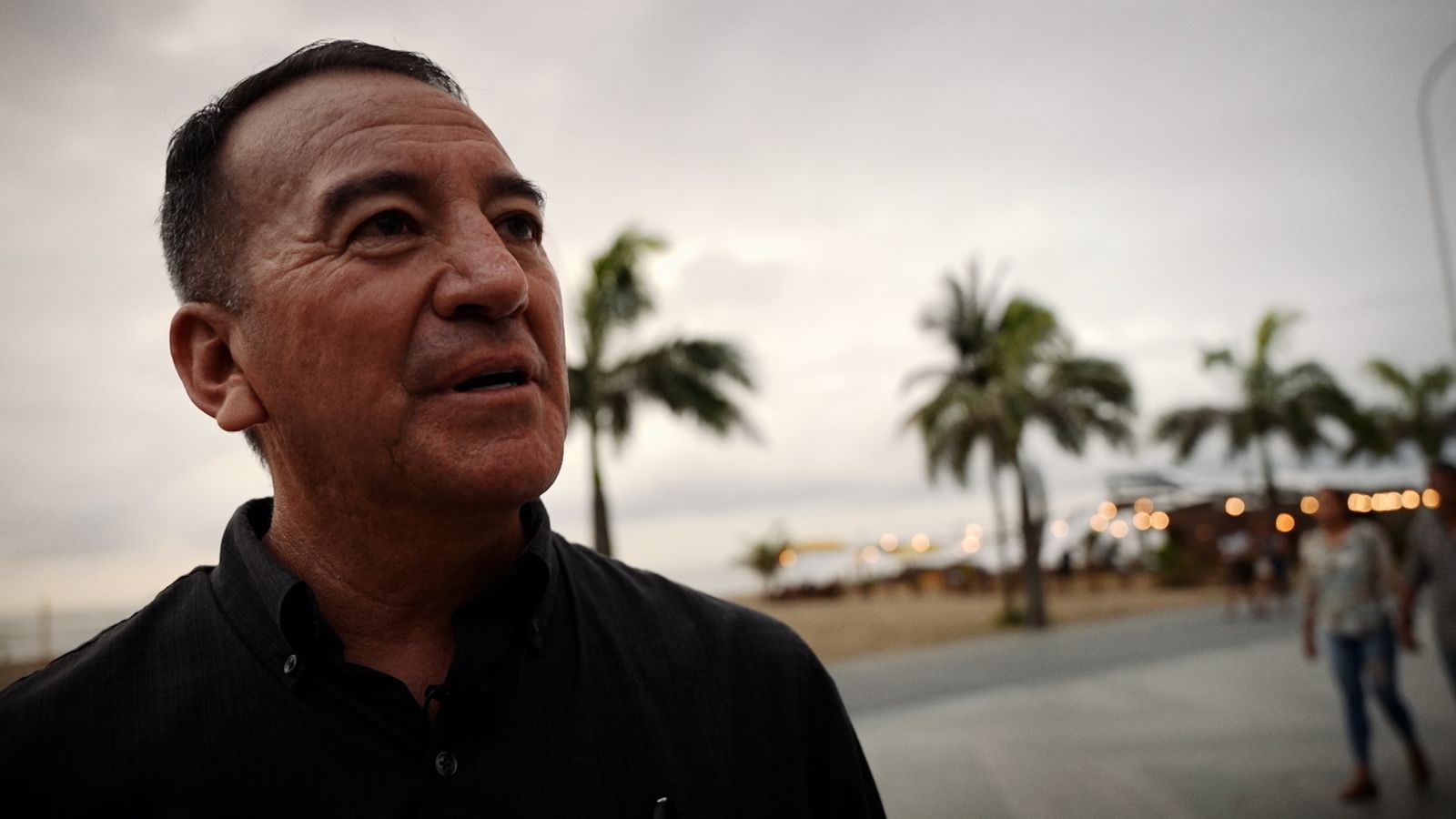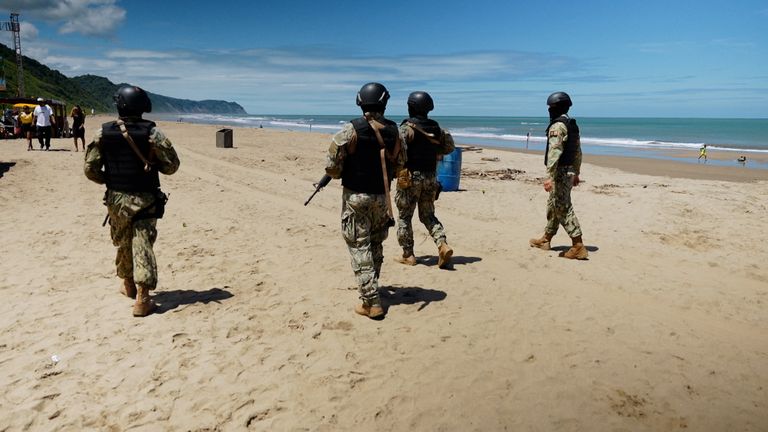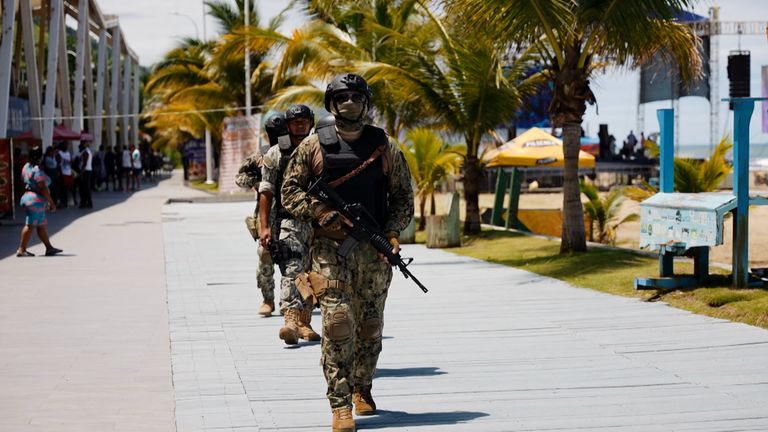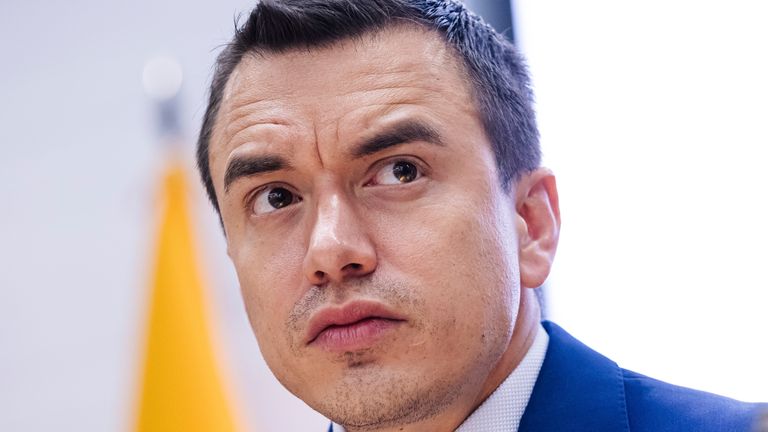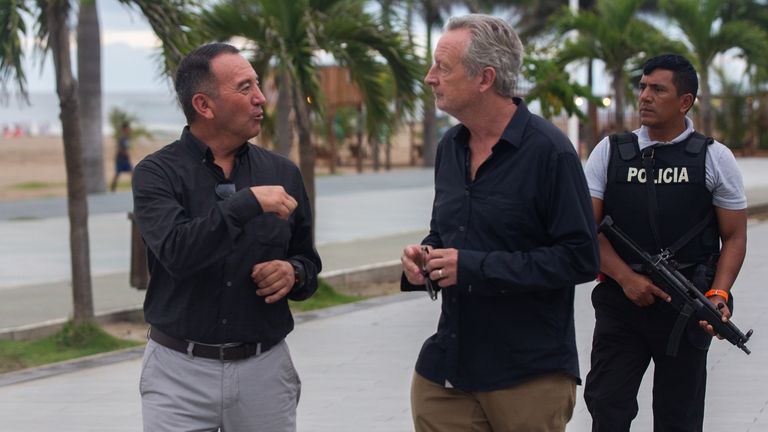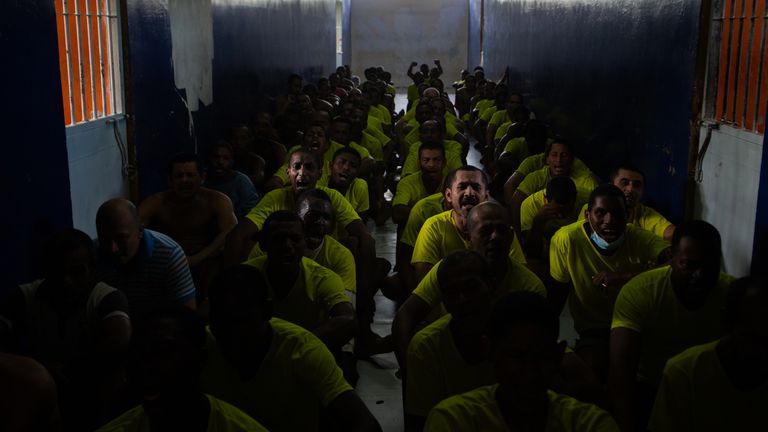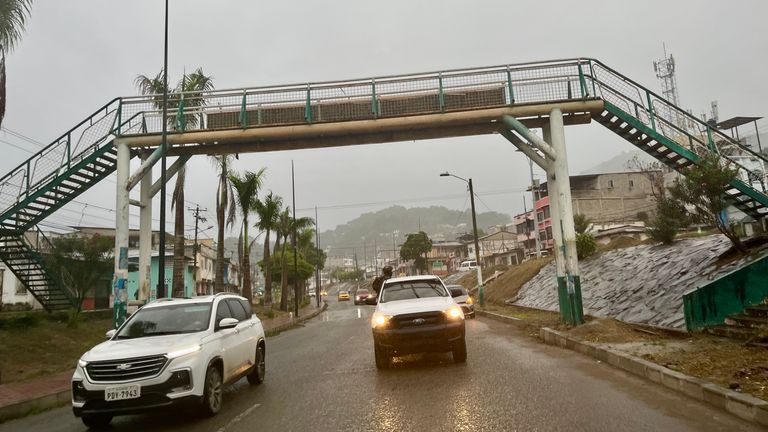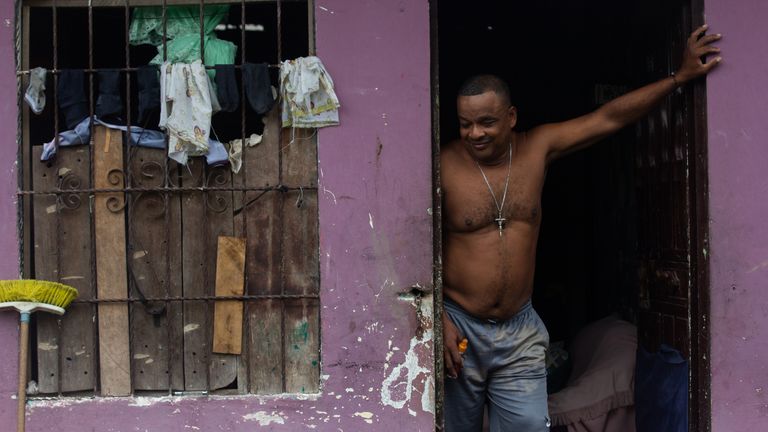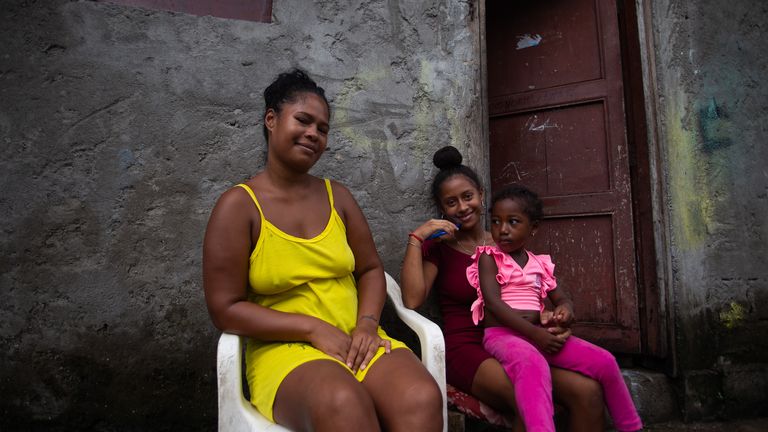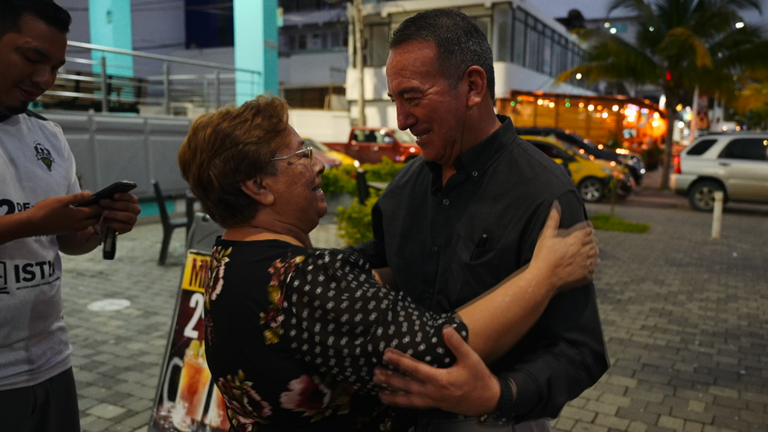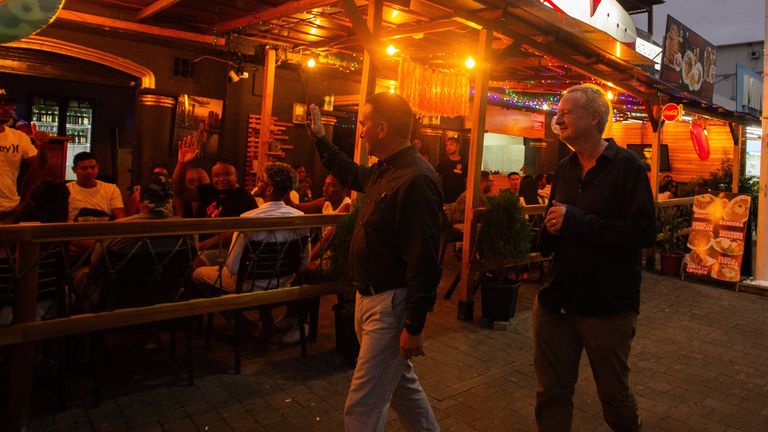The mile-long strip in Ecuador’s port city of Esmeraldas is rocking to the sound of Latin beats and laughter.
The main road on the beachfront is bordered by the blue sea and white sands of the Pacific Ocean on one side, and packed bars and restaurants on the other. It’s summertime, it’s carnival, and it’s party time.
The hotels have somewhere over 70% occupancy and in the best restaurants one has to queue for a table, albeit while nursing an ice-cold cocktail as you wait.
This could be any hot tourist destination, from Rio de Janeiro to the Caribbean, to Florida, to Spain. I’m fortunate enough to have visited all of them.
There is a difference here though.
As one crosses the road to get an ice cream, for example, you have to make sure you aren’t in the way of a patrol of heavily armed, balaclava-wearing, body-armoured marines who are a constant presence – sometimes patrolling in their vehicles, sometimes on foot.
It looks normal, it feels normal, but it isn’t.
The city of Esmeraldas, and Ecuador as a whole, is at war with the drug gangs, and while the security forces are winning at the moment, the war is anything but over.
Just a few weeks ago Esmeraldas was a no-go zone, indeed even now very few international journalists or foreigners have visited this coastal city.
The beaches and streets were empty then, and hotels had near zero occupancy.
Restaurants were shut and bars were open to just a few regulars.
Violence and insurrection spread across Ecuador
The drug gangs and their Mexican cartel bosses were murdering people, exploding car bombs, and promising insurrection after the president of Ecuador put in place a nationwide crackdown on their business interests and their complete disregard for the rule of law – even democracy.
Daniel Noboa, the 36-year-old president of Ecuador, launched the crackdown after notorious drug gangster Adolfo “Fito” Macias escaped from prison in Guayaquil.
Violence and insurrection spread across the country after his escape, and Esmeraldas quickly became a big problem. Its murder rate spiked, making it one of the most dangerous cities in the world at the time.
‘They aren’t afraid anymore, they are free’
President Noboa needed someone to sort it out. He made the call one morning.
The man who answered was the retired former police chief of Esmeraldas, now living in the United States.
The president said he needed help. The man he rang nodded his agreement, hung up, told his wife, and took the next flight home to Ecuador.
I met Javier Buitron beside the sea in Esmeraldas, his bodyguards a constant presence.
He is now the governor of Esmeraldas.
“People didn’t leave their houses, they were scared they would be killed,” he told me.
“Now I am happy because they aren’t afraid anymore, they are free, the people are free and are now enjoying this place, in the bars, enjoying the streets, and now enjoying the beach.”
Authorities regain control
Working alongside the police and the military, Mr Buitron is credited with turning this whole place around in just 26 days.
The authorities now have control of the streets. They have also regained control of the local prison, and officers and soldiers can enter neighbourhoods they couldn’t go into before including an area where the gangs had aligned themselves to the Sinaloa and Jalisco New Generation cartels from Mexico.
Before, Mr Buitron said, for a few grim weeks, bodies were hanging from bridges in that part of Esmeraldas, a tell-tale sign of the presence of Mexico’s most powerful cartels in these very neighbourhoods.
Residents celebrate changes
I visited the area and spoke to the residents, who said it was a nightmare, and that they were happy things were changing.
“I feel very grateful personally, because here before, at this time of the day, you couldn’t even be out here, bullets would rain down from the other side, from side to side, but now you see, we are calm, we are at peace,” a man named Leonardo told me, speaking from his front door.
His neighbour Andrea agreed: “Things have gotten a lot better, it has changed a lot,” she said. “Now you can go around, you no longer hear shootings like before, you don’t hear that anymore, it has changed a lot.”
Governor makes sure he is visible among public
Even though the gangs want the governor dead, he makes sure he is present and visible, day and night – with permanent security at his side.
People here in Esmeraldas treat him like a rockstar.
At the beachfront we can’t walk for more than 10 minutes or so at a time on the main promenade without someone stopping him to talk, ask for a selfie, or simply say thanks.
I have never seen a politician treated with so much reverence before.
He said seeing people this happy makes him happy, and it encourages him to keep going.
“We need to recover people’s faith, we need to recover the economy, and we need good things for people, opportunities,” he said.
“Every day we are working, we don’t have time to rest, we have to work hard every day, because I am here to solve problems.”
